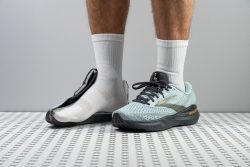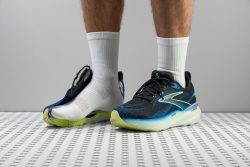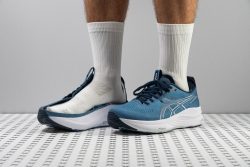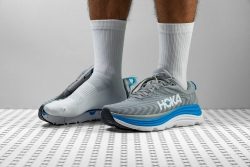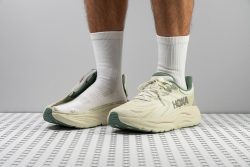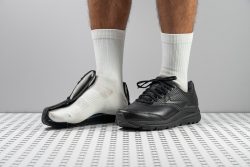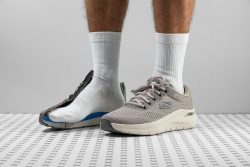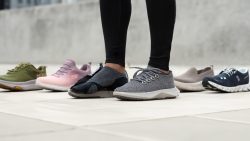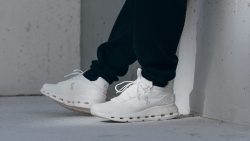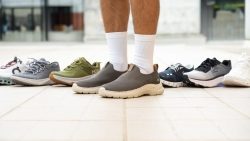7 Best Stability Walking Shoes in 2025
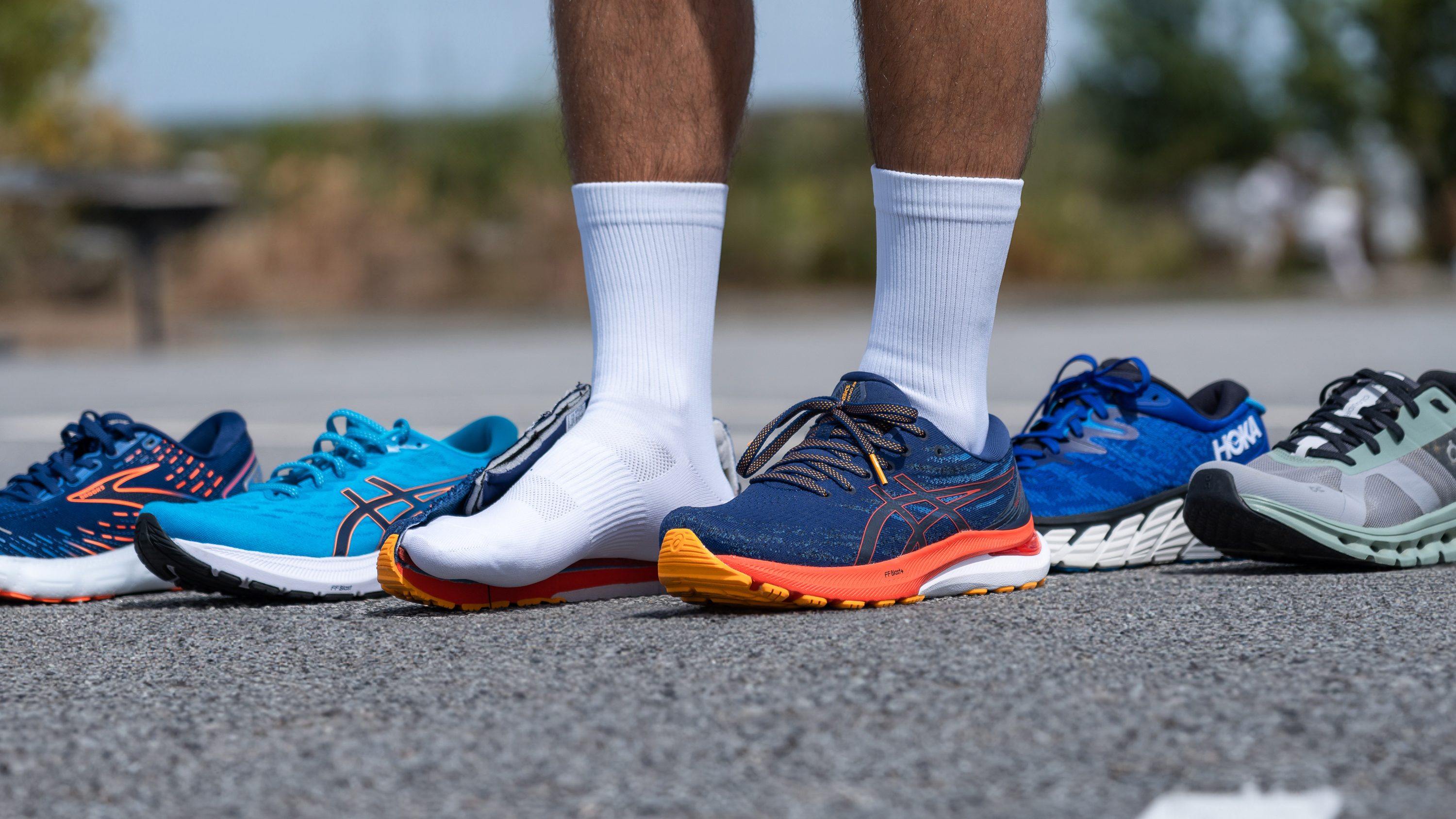
We buy shoes ourselves. We earn commissions when you buy through us, at no extra cost. Why trust us
If you have mild to moderate overpronation, the least you would want to have when exploring cities are awfully painful feet. To avoid this, you've got to lace up the comfiest footwear that alleviates your foot condition. If you're on a hunt for one, don't fret, as we've done the leg work for you.
We've subjected stability walking shoes to arduous testing so we could choose and analyze which provides an extraordinary amount of support. To find the best, we checked shoes from different brands, with varying kinds of features and closure systems. We tested all these shoes on the test walks and we tested them in our lab. Also, to make things easier, we crafted our recommendations under various categories for your quick reference.
How we test stability walking shoes
For an unbiased and fair review, here is our approach:
- We buy these stability walking shoes using our own money. It doesn't matter how much they cost, we do not accept donations and sponsorships for all of them so no favoritism could prosper to any model.
- We put these shoes through a series of tests and comparisons in the field to check different parameters, such as comfort, durability, and support. We walked in them on short and long trips, for recreation and work, and on concrete and other floorings.
- We also go deeper by scrutinizing them in our lab. We even dissect the shoes open so we can unfold every detail about them.
Best stability walking shoes overall
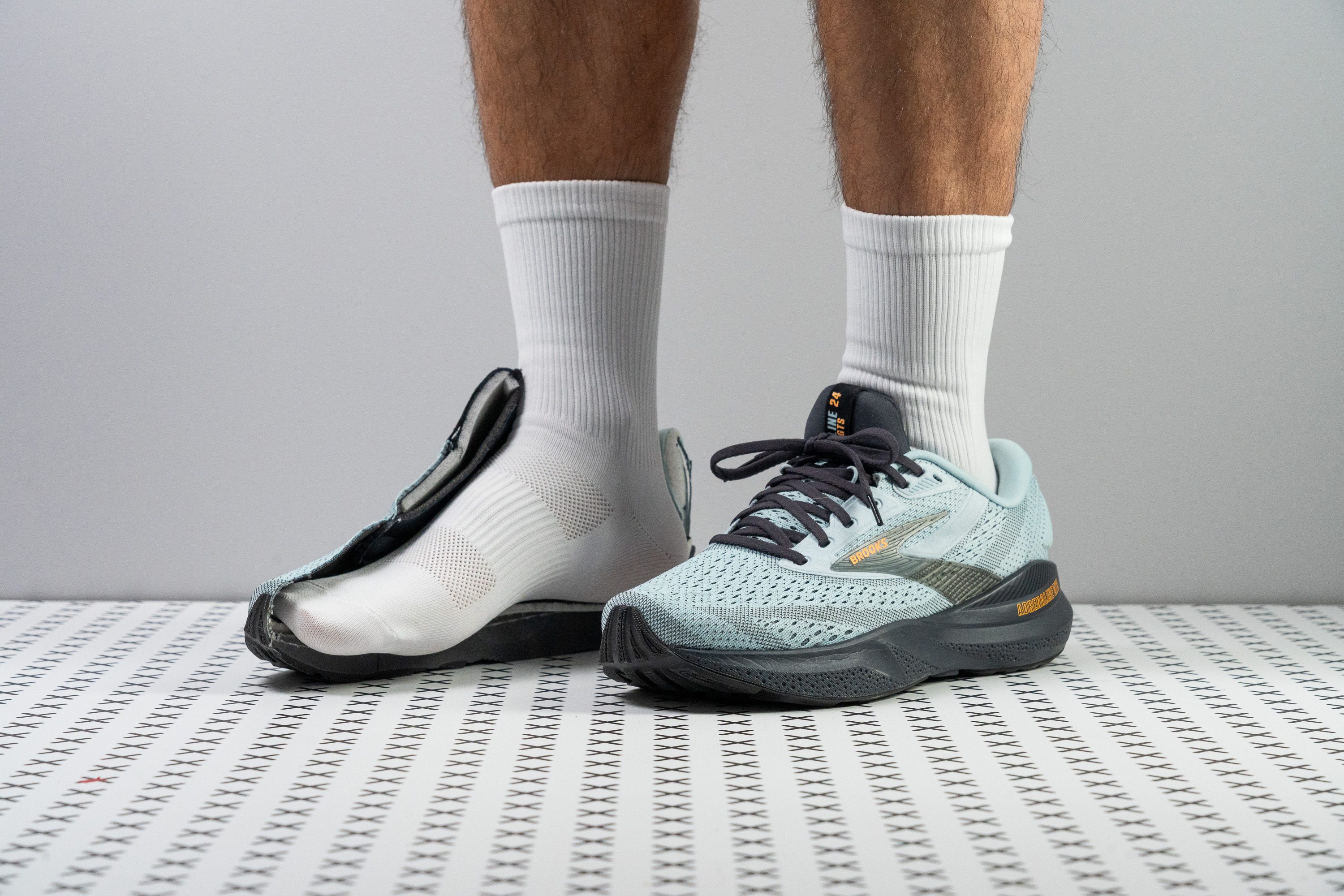
















































What makes it the best?
The Brooks Adrenaline GTS 24 graced our wear tests with exceptional support, while its impressive durability impressed us in the lab. The security we experienced is unmatched because of its GuideRails technology, while its forgiving midsole enhances comfort for long hours on foot, making it stand out as our best stability walking shoe.
GTS stands for “Go To Support,” and this shoe offers reinforcements through its GuideRails technology. Extending to the midsole sidewalls, it cradles our feet so that we remain centered. Ankle twists seem impossible, especially since the shoe is twist-resistant with its high 4/5 torsional rigidity score.
Meanwhile, moving forward feels natural and seamless due to the flexible midsole. In our bend test, it emerged 32.7% more pliable than average, creating a comfortable environment for walking and other activities.
We also didn’t have to worry about premature wear, since the outsole shed off minimal 0.8 mm rubber compared to the 1.0 mm average.
Unfortunately, all the stability and durability tipped the scales to a heavy 10.3 oz (291g). Those who prefer an agile and weightless ride should try lighter options.
Pros
- Stack height upgrade!
- Reliable support
- Breathable mesh with oversized vents
- Price remains unchanged
- Available in 4 width options
- Good durability
- Plush tongue for top comfort
- Ideal for heel strikers
- Foam upgrade to DNA Loft v3
Cons
- Firmer-than-expected midsole
- High drop may feel too steep
- Toebox height is a bit low
- Non-gusseted tongue
Stability walking shoes with the best shock absorption
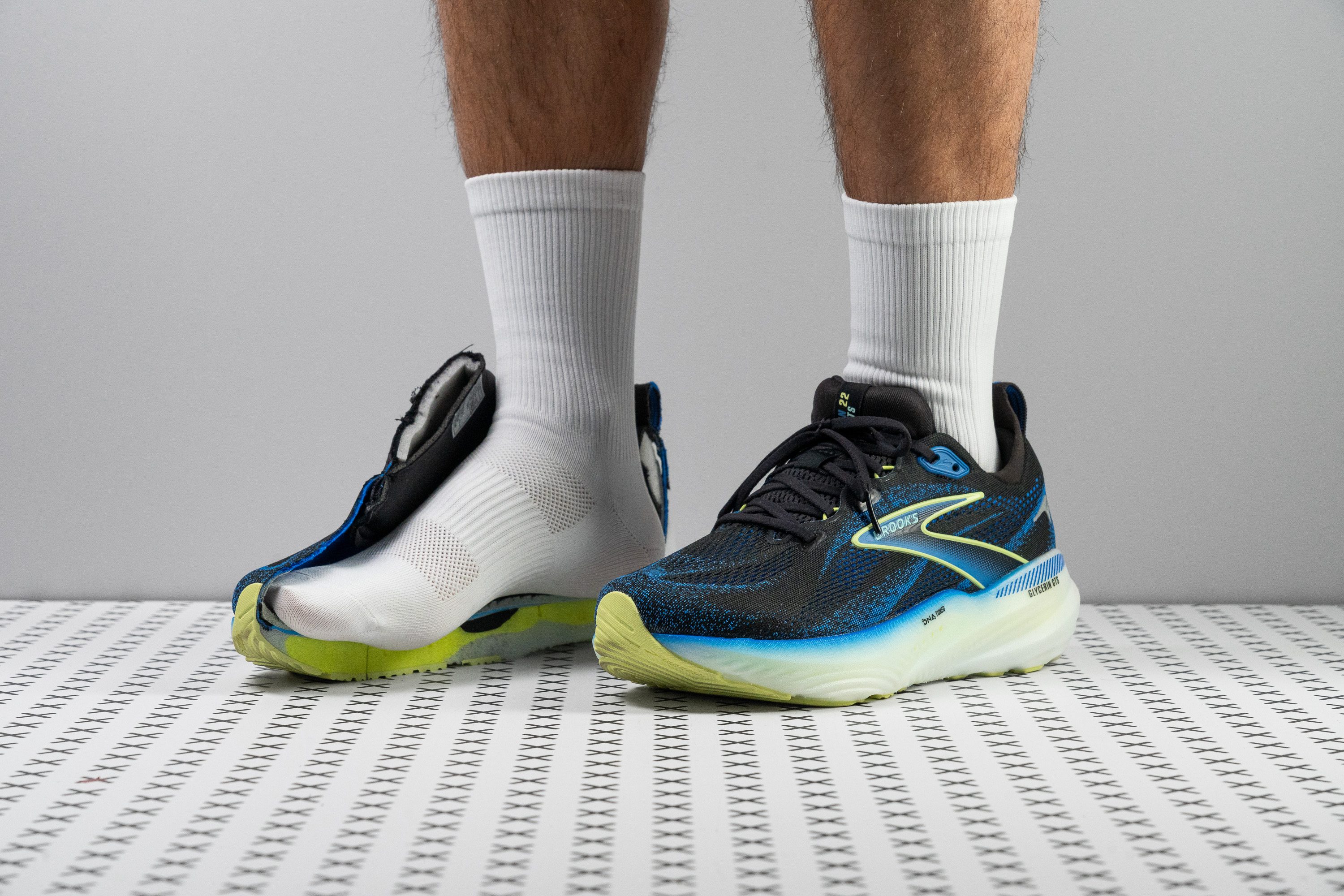
















































What makes it the best?
Long walks in the Brooks Glycerin GTS 22 did not lead to any pain, ground impact, or excessive movements. Instead, every step felt secure and properly aligned while staying well-protected. Even our lab can’t deny its status as the best shock-absorbing stability walking shoe.
During testing, we were on cloud nine even as we stood all day. Despite its strong support, the shoe doesn't compromise on comfort. Our caliper proves it stands tall at 37.8/27.7 mm, more generous than the average (34.2/25.6 mm). Our arches enjoyed the secure sensation of the 24.1 HA midsole, and our heels enjoyed the gentle landings, proven by its 122 SA or shock absorption rating.
While many shoes of this height feel unsteady, Glycerin GTS 22 enhanced stability through its vast base and GuideRails system. Our caliper reveals an extra-wide landing platform of 119.1/97.1 mm to find our balance. The GuideRails raise the midsole’s sidewalls for higher resistance against lateral movements and ankle rolls. True enough, we found the shoe difficult to twist in our manual assessment, receiving a high 4/5 torsional rigidity score.
However, as expected, the shoe limits our speed as it weighs 14.7% heavier than average. Those who prefer lighter builds should search further.
Pros
- Fantastic stability
- Impressively cushioned
- All-day comfort
- World-class outsole durability
- Superb lockdown with zero slippage
- Extra-breathable mesh
- Multiple width options
- New DNA Tuned midsole
- Does the job as a casual shoe
Cons
- Slightly heavy
- EVA-based foam lacks energy return
- Small price bump
Stability walking shoes with the best durability
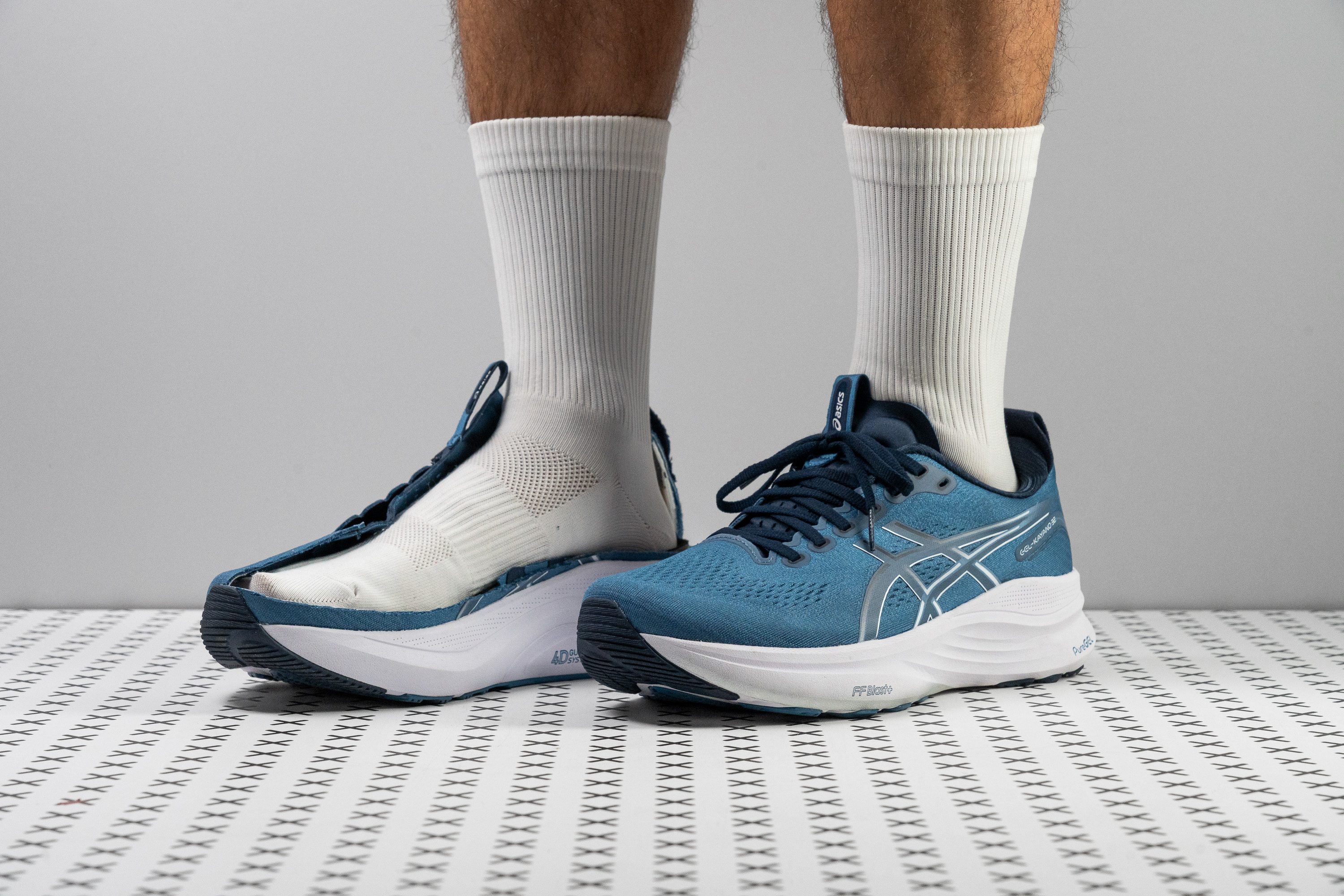













































What makes it the best?
Unwavering support and undeniable comfort, with an unbreakable outsole, the ASICS Gel Kayano 32 is unstoppable in and out of the lab. It has subtle yet effective stability without making the ride firm. It’s easy to wear this shoe all day because of its long-lasting nature, ultimately making it our best durable stability walking shoe.
We hit the pavement every single day with this pair and didn’t see any signs of damage. Our Dremel test proves this with 30.0% less damage than average, while our caliper shows it’s unbelievably thick at 4.5 mm, erasing any doubts about its longevity.
We thoroughly enjoyed the shoe’s impact-protective ride. Diving deeper into the midsole, we discovered the PureGEL in the heel offers much softer landings, further amplifying its high shock absorption score of 133 SA. We never ran out of cushioning with its sky-high 39.9 mm heel stack.
Staying true to its core, GK 32 offers reliable support through its midsole sidewalls, vast base, higher arch, and the 4D Guidance System. All work hand in hand to create a reassuring sense of security with every step we take.
While the foam feels good upon landing, it lacks responsive toe-offs, proven by subpar energy return scores in the lab. Those who prefer more springiness are better off elsewhere.
Pros
- Amazing shock absorption
- Plush and breathable upper
- Made to last
- Dependable for most pronators
- Heavy-duty outsole with excellent grip
- Stable as a table
- Pillow-soft heel padding
- Improved fit
- Excellent build quality
Cons
- Not for soft-foam lovers
- Bad energy return
- Overpriced in Europe
Best stability walking shoes for wide feet
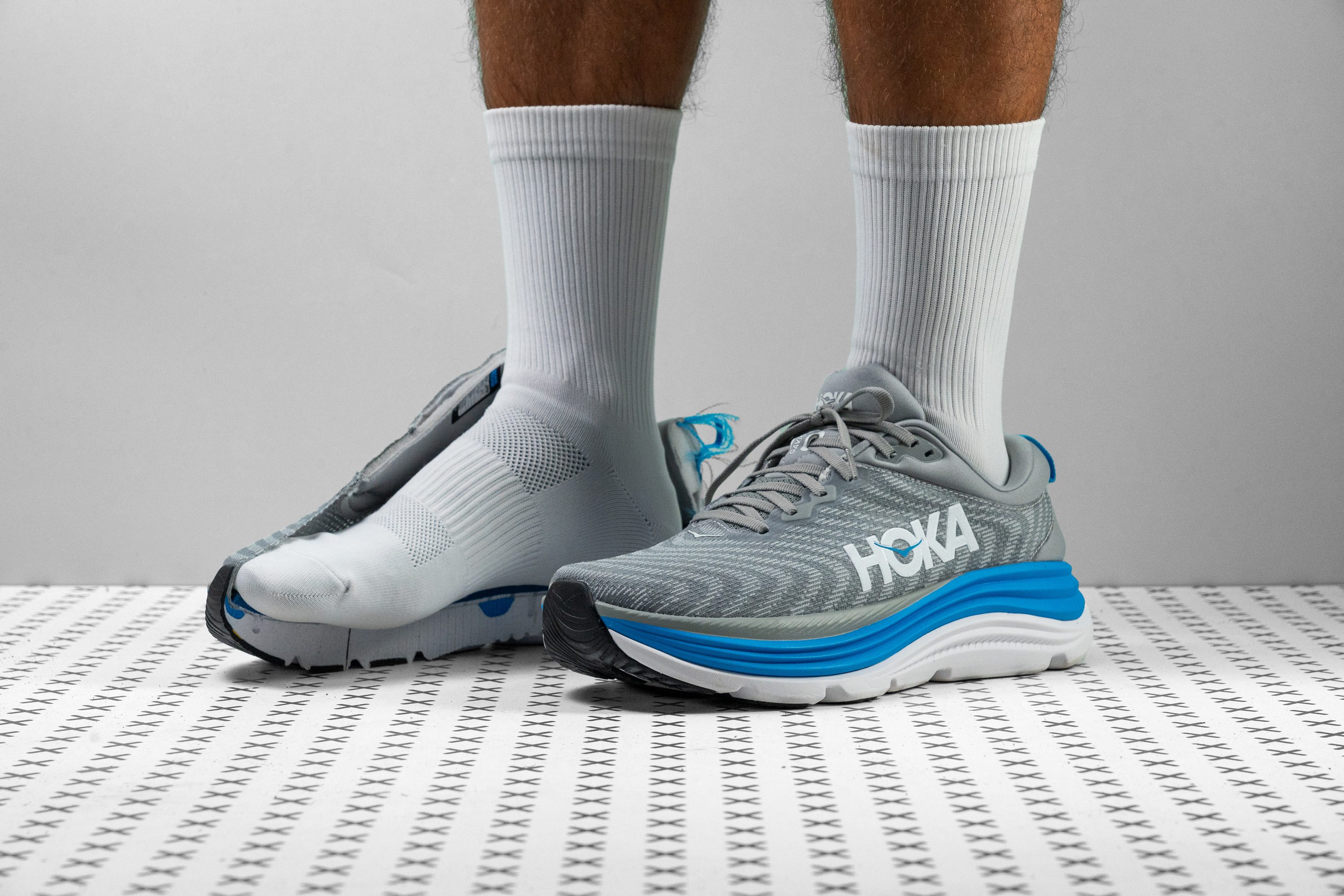

















































What makes it the best?
The Hoka Gaviota 5 is our top choice for people seeking a supportive, cushioned walking shoe with a forgiving fit, especially for those with wider feet or stability concerns. It took care of our feet well, ensuring no pain and wobbles, which earned our seal of approval in the lab.
The Gaviota 5 offers a refreshing ride with its breathable upper and accommodating toebox. Measuring 101.8 mm and barely tapering to the 83.1 mm big toe, we never felt uncomfortably cramped. Adding to its unrestricted feel is free airflow, evidenced by its 5/5 rating in our smoke test.
The midsole also offers generous width for broad feet: at 125.1/106.6 mm, it’s a whopping 11.0/15.9 mm wider than the average base. This adds to our surefootedness as we have generous room to securely find our footing. Meanwhile, the stiff H-Frame adds resistance to the midsole to avoid unwanted movements and ankle rolls.
Thankfully, the gentle sensation of the cushion kept us comfortable throughout the day. We discovered a dual-density set-up in the midsole: a main plush 12.9 HA foam for comfort, and a firmer 22.0 HA layer in high-impact areas for stability.
However, the shoe’s focus on support takes away the natural feel that some people prefer. Both torsionally and longitudinally, Gaviota 5 emerged stiffer than average.
Pros
- Remarkably stable
- Breathable and comfortable upper
- Lightweight for its size
- Good stability option for forefoot strikers
- Ideal for wide feet
- Excellent for long runs
Cons
- Low drop might pose issues for heel strikers
- Performs poorly in colder conditions
- Not for narrow feet
- Midsole feels flat
Best lightweight stability walking shoes
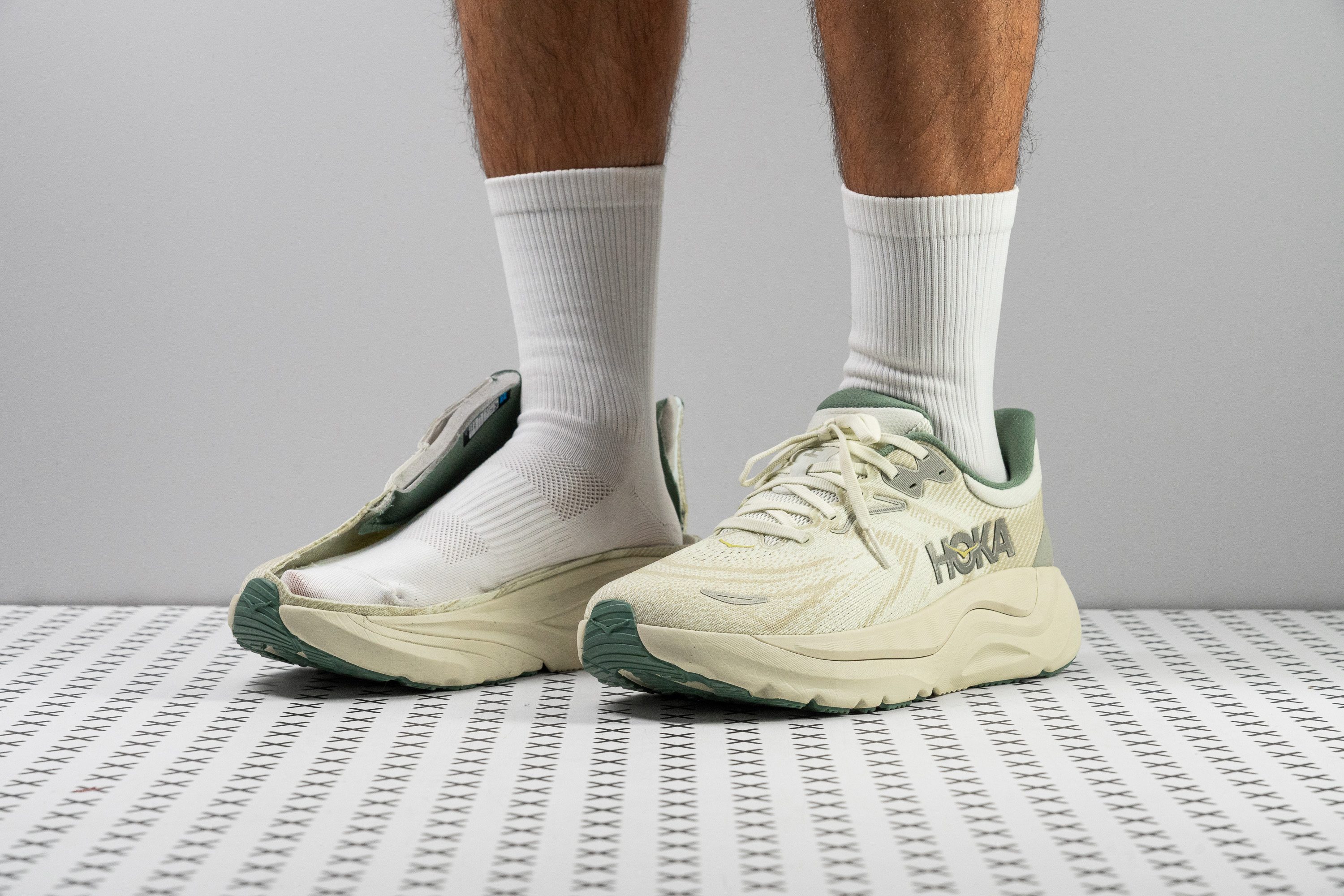











































What makes it the best?
Even with its airy feel, Hoka Arahi 8 reassured us of stability in our extended walks. In our lab tests, it stands out as a leader in the lightweight category. Its featherlike nature is counterbalanced with a sturdy structure without compromising comfort.
It was a delight to bring Arahi 8 on our brisk walks as our scales revealed its mere 9.1 oz (259g) build vs. the 10.3 (293g) average stability shoe. At this weight, we are surprised by the generous cushioning that spoiled us with leg-saving comfort. Our caliper confirms its stack rises to 39.4/28.1 mm and offers supreme comfort through its high shock absorption of 138 SA in the heel.
Our confidence in every step feels stronger than ever, thanks to the vast heel and Hoka’s H-Frame technology. Each landing feels surefooted as our caliper shows an extra width of 5.6 mm in the rear. Meanwhile, the H-Frame mitigates excessive twists and lateral motions to protect us from injuries. Our manual assessment confirms its torsional rigidity with a 5/5 score.
With great stability comes rigidity, which our bend test confirms, as it needed 22.0% more force to bend to 30 degrees than the average shoe. Those who prefer a more natural feel should look elsewhere.
Pros
- Impressively lightweight for its size
- Strong shock absorption
- Wider fit than previous versions
- Outstanding durability across upper and outsole
- Early-Stage Meta Rocker smooths transitions
- Higher drop suits better heel strikers
- Comfy and plush for everyday use
- H-Frame stability system
- Comfortable heel counter
Cons
- Very poor breathability
- Grip needs to improve
- Still no supercritical foam
- Minor price bump
Best leather stability walking shoes
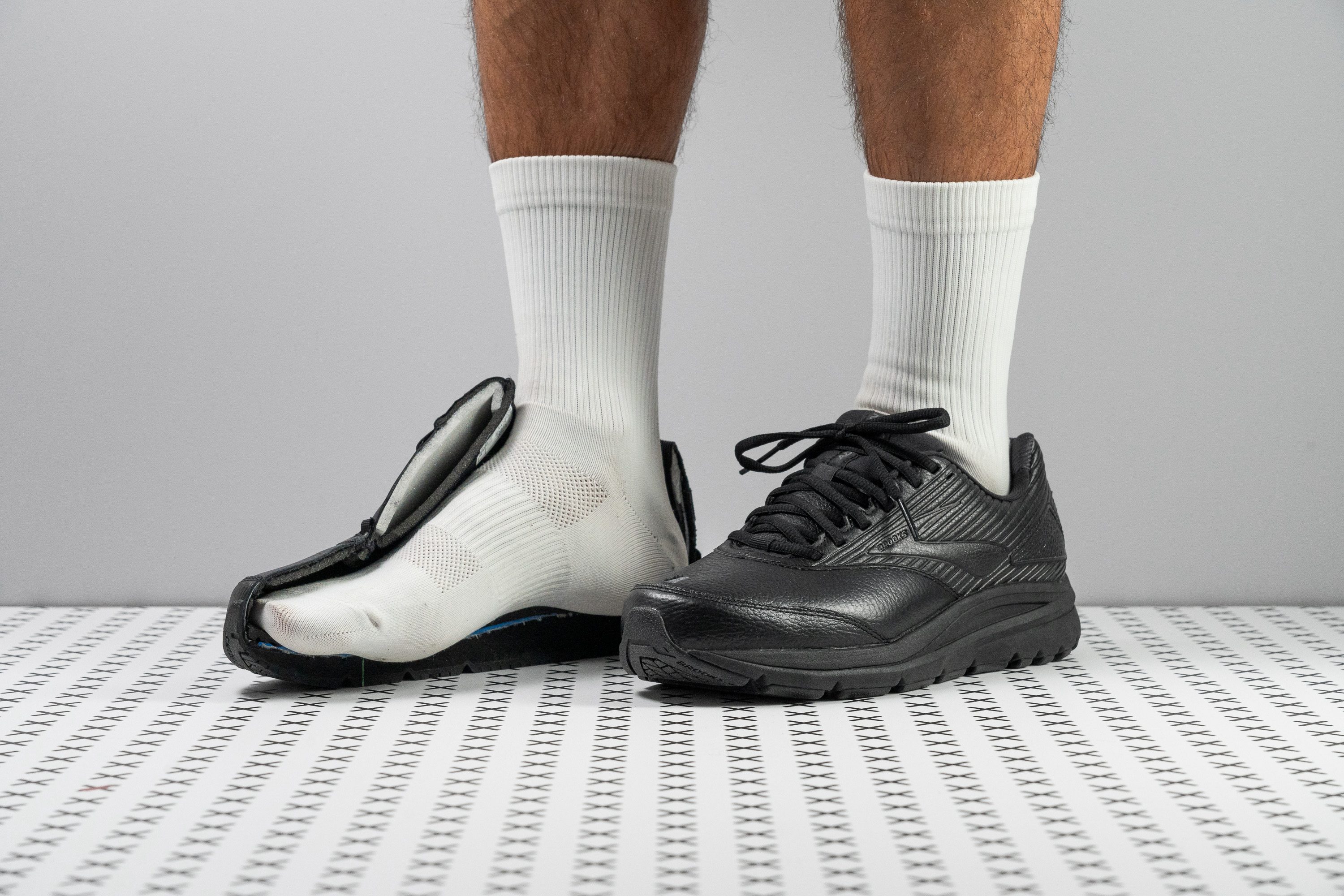



















































What makes it the best?
Sturdy and supportive from top to bottom, the Brooks Addiction Walker 2 emerged as the best leather stability shoe in our strolls around town. Backed up by the lab, it inspires solid footing with its well-cushioned yet balanced platform and unforgiving construction. Plus, it’s built with foot health in mind and approved by podiatrists.
Its all-leather construction is literally foot armor. Other than providing support through its stiffness, it’s very resistant to damage. As our Dremel test proves, we awarded AW2 with the highest 5/5 toebox durability score since it barely had visible scuffs. Even underfoot, the rubber outsole promises longevity as it measures 2.9 mm thicker and 11.6% harder than average.
We had no instances of bottoming out and rolling our ankles even as our feet became tired—the balanced cushion and sturdy posts work hand in hand for surefooted strides. Our durometer exhibited a midsole hardness of 25.9 HA. Moreover, it strongly resisted our manual twists with the highest 5/5 rating, making it extremely unyielding to excessive foot contortions.
We noticed that walking with this shoe felt like dragging a heavy load. Our lab confirmed a massive 13.7 oz (388g), that is 39.6% above its counterparts.
Pros
- Unmatched stability and arch support
- Broadly recommended by podiatrists
- Incredible abrasion resistance and durability
- Thick and lasting cushioning
- Wide and steady platform
- Great for cold and drizzly days
- Comfortable in-shoe feel
- True to size and fit
- Can match formal work attire
Cons
- Heavier than average
- Quite stiff, needs breaking on
- Not as slip-resistant as claimed
- Not breathable
Best budget stability walking shoes
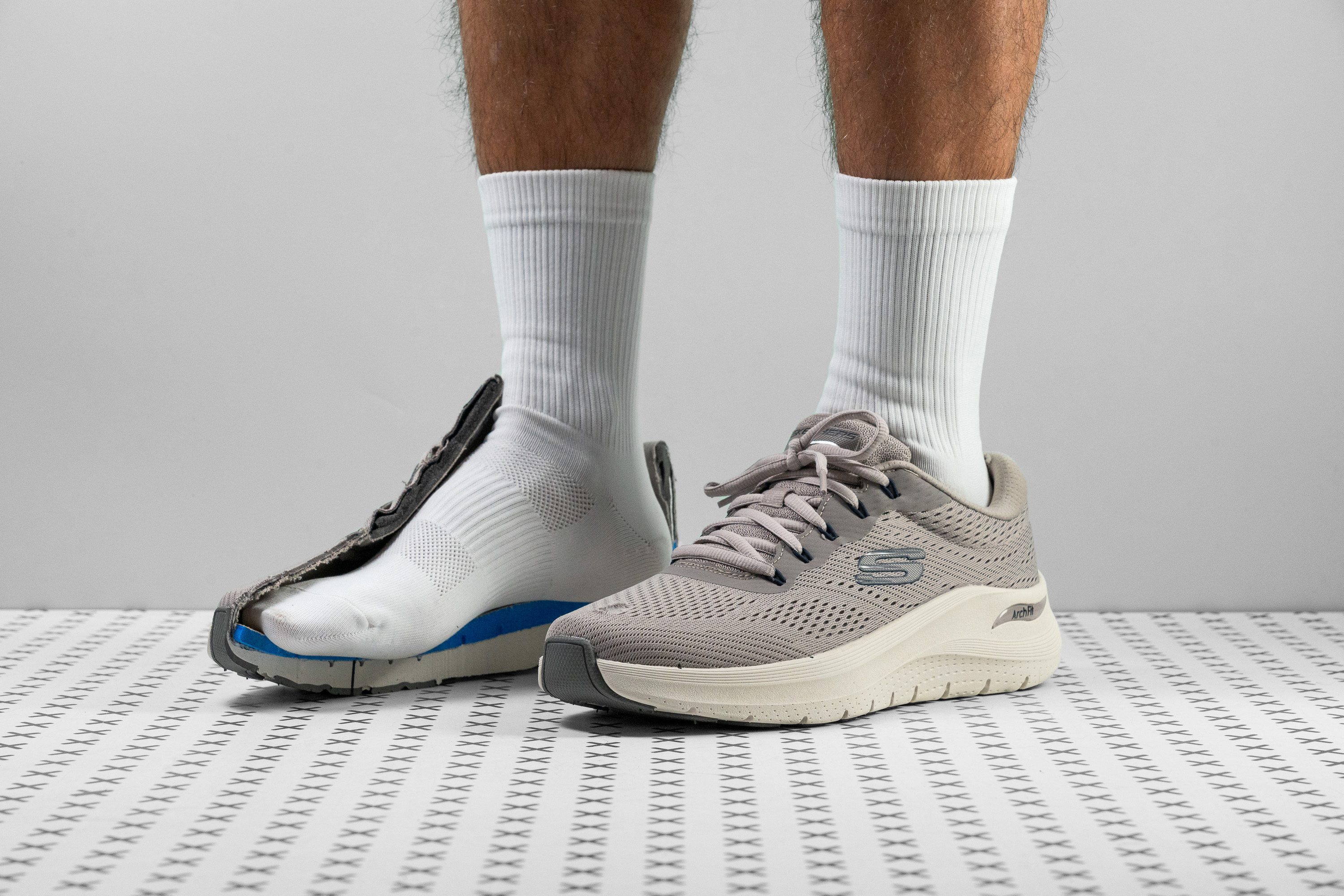














































What makes it the best?
In our lab and wear tests, we found Arch Fit 2.0 highly supportive and comfortable for all-day wear. It has so much to offer at $90 vs. the $117 average of walking shoes. As our best budget stability walking shoe, we recommend it to those with flat feet, overpronation, and lower-leg conditions.
Each footfall of ours is met with a firm and generous landing platform. Both elements contribute to a stable ride. Our durometer shows a balanced 30.4 HA, 21.1% harder than average. It feels soft enough for long hours yet supportive enough for overpronation and plantar fasciitis. At 114.5/90.0 mm, we have more room than average to find our footing securely.
We’re blown away by how light and steady it feels despite its height. With a mighty 39.2 mm heel, it’s significantly 7.1 mm thicker than average, providing cushioning for long hours. Paired with a 24.0 mm forefoot, it results in a 15.2 mm drop that relieves the pressure on our ankles and Achilles.
Arch Fit cements its stability by stiffening up the midsole. Our bend test confirms it’s 18.6% more resilient than average. It doesn’t feel too rigid on foot since the flex grooves allow us to bend our feet.
Given its budget-friendly price, durability is sacrificed. Arch Fit 2.0 wreaked havoc in all our Dremel tests in the upper, heel, and outsole.
Pros
- Amazing support for overpronation
- Tons of cushioning
- Wide and stable platform
- Lighter than the Arch Fit 1.0
- Perfect for all-day wear
- Padded and cozy interiors
- Great traction on wet and dry surfaces
- True to size
Cons
- Very poor breathability
- Lacks durability

